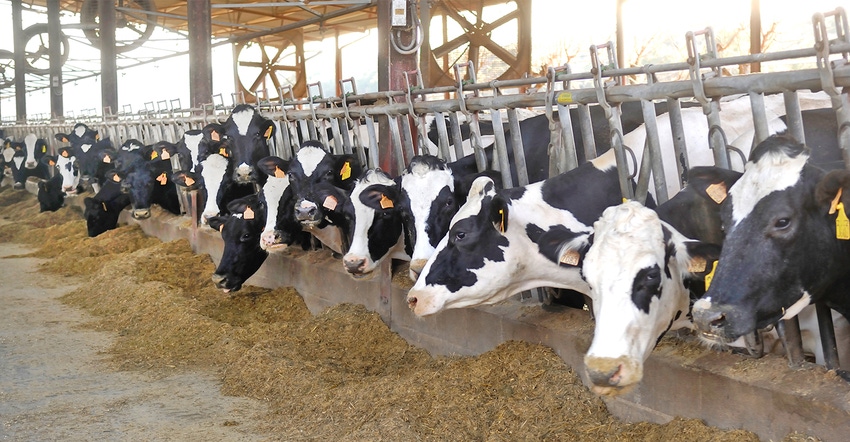August 28, 2018

By Sarah Mills-Lloyd
Just as tractors, machinery and cars are scheduled for regular maintenance, such as oil changes and replacing filters, additional items on the farm should also be on a regular maintenance schedule. Through proper scheduled maintenance, you can help increase the life span of equipment, allowing for greater return on your investment and reducing costly emergency repairs.
Farm equipment not usually placed on a regular maintenance schedule includes fans used for ventilation in dairy barns. Lack of proper air movement within barns is a major contributor to respiratory issues. Ventilation systems are specifically designed for each structure to provide consistent, clean and fresh air at the optimal performance of the equipment; however, ventilation systems may underperform if not maintained or cleaned consistently.
According to Iowa State University Extension, fans with dirty blades or louvers can reduce airflow as much as 40%. Since cows mainly cool themselves by evaporative cooling, the ability to move a significant amount of air becomes especially important for them as outside temperature increases.
Fans placed in certain environments can lead to dust buildup in or near the motor. If not cleaned regularly, they can not only pose as a fire hazard, but also lead to greater energy inefficiency because they require more electricity.
Performing maintenance
Before performing any maintenance on fans, turn off the electrical supply to prevent injury. Since water and electricity do not mix, motors and other movable parts can be cleaned with compressed air. Manually clearing the dust from blades, louvers and guard screens before using compressed air can eliminate small particulates from circulating, which may impact those with breathing issues.
Noise on farms might lead to hearing loss or an inability to communicate with workers in dangerous scenarios. Barn fans can add to the decibel level as blades can become warped due to inferior metal or dust accumulation.
Belts should be replaced on belt-driven fans on a regular basis. In addition, natural deterioration of the rubber can lead to belt failure, so regularly check belts for signs of cracking and wear. Keep spare belts on hand to decrease downtime if one breaks.
Read and follow the manufacturer’s recommendation for equipment maintenance. If you need to lubricate shutters or metal parts, consult your owner’s manual; however, University of Minnesota Extension advocates using graphite over oil. Oil will attract particulates that will lead to decreased effectiveness.
Keep a record of all repairs and maintenance for future reference. Regular maintenance of fans will reap large benefits. If you pay now for replacement parts and maintenance, your livestock will not pay later by not having a working fan.
Mills-Lloyd is a veterinarian and is the Extension agriculture agent in Marinette and Oconto counties, Wis., specializing in dairy and livestock. This column is provided by the University of Wisconsin-Extension Dairy Team.
You May Also Like




